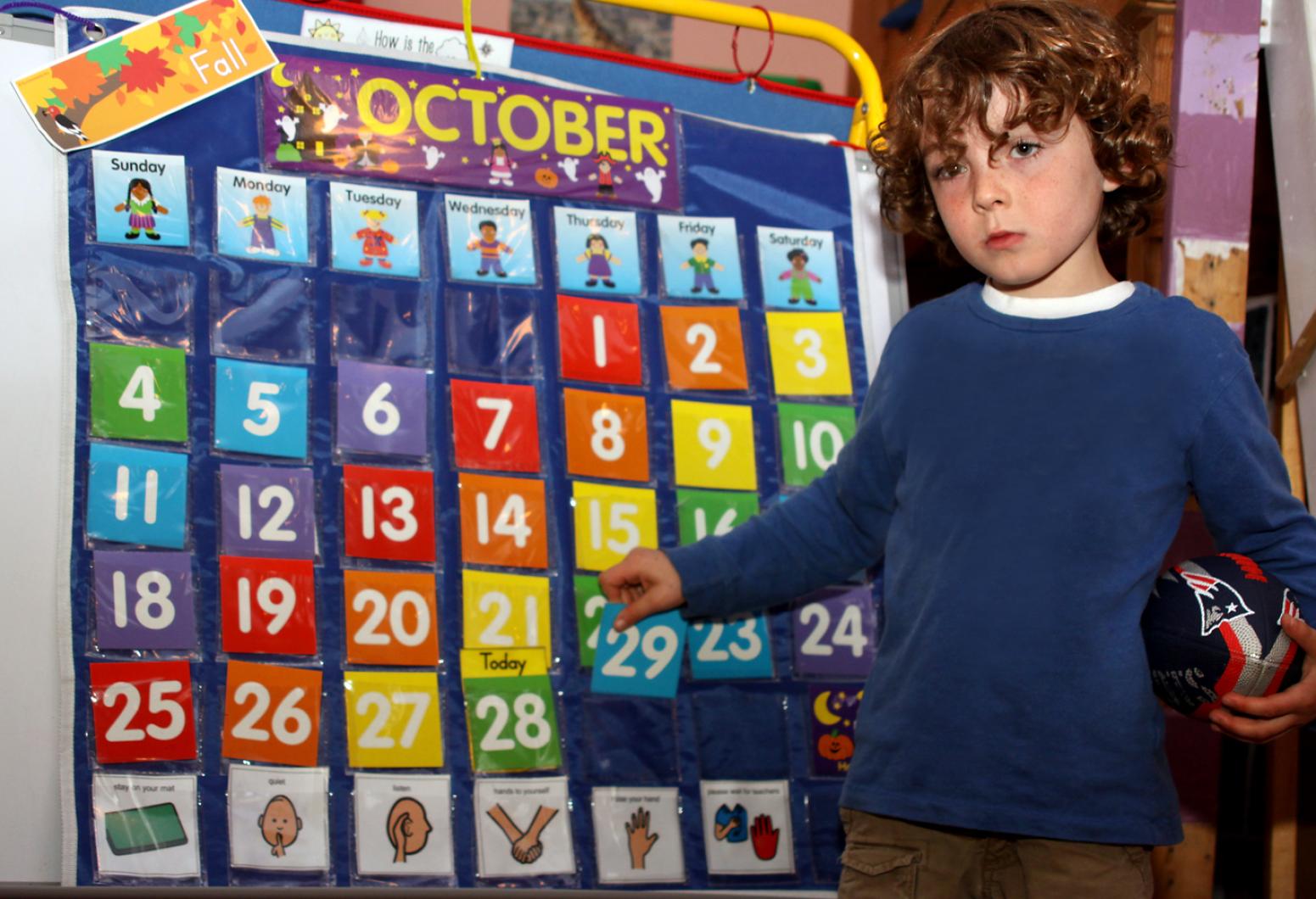The Island Children’s School in West Tisbury was a busy place on Wednesday morning, as two to five-year-olds spread throughout two schoolrooms went about their daily preschool routines.
One group crowded around a colorful picture book on a comfy couch in the corner, while another worked intently, with the help of a teacher, to transform brown paper lunch bags into fish puppets. Snapshot portraits tucked into the pockets of a job chart poster acted as a guide to which students are responsible for the daily weather report, line-leading, or ringing the bell.
Still others painted colorful portraits, helped a teacher make honey butter and biscuits, and molded a table full of play dough into a colony of worms and snakes.
And if all this seems like trivial playtime, teachers and child development experts will tell you differently. Preschool play is an early form of education considered critical to early childhood development.
And it may now be threatened. On the Vineyard preschool, is rapidly becoming an exclusive privilege, available only to families wealthy enough to cover the full freight or those with incomes low enough to qualify for government subsidies. The vast majority fall somewhere in the middle; they make too much to be eligible for assistance but too little to cover costly preschool tuitions.
“All of the things they are learning: math and science and language arts and expression through play are important,” said Island Children’s School director Julie Immelt. “I think if they don’t get some of that before they get to school they can be lost.”
While there are no hard numbers available, early indications are that fewer Island children are entering kindergarten with preschool experience. Ann Palches, Island early childhood coordinator, has made a practice of calling around to Island kindergarten teachers each year to ask how many of their students have attended a preschool program. The number of kids who have not “seems to be inching up,” she said. “It’s literally inching, but I think we will see that continue.”
Preschool enrollment appears to be shaky as well. Enrollment at Island Children’s School declined so much last year that the school changed its schedule requirements to attract children. The school used to require that all students attend a minimum of five half days a week for consistency. “But since it is such hard times, we’ve changed it . . . because parents can’t afford the five days,” said Ms. Immelt. Now the five half-day mandate applies only to children aged four and five. Children aged two years, nine months to three can now choose a two or three-day schedule. Enrollment has gone up, but Ms. Immelt said the children will not get the full advantage of preschool.
“I’m afraid a lot of people might be having their friends watch their kids,” she said. “They are missing the importance and the enrichment of school.”
The main problem can be tracked to state funding, which has dropped significantly as a result of the recession and a restructuring of the Massachusetts early education funding system. The state now sets stricter eligibility requirements for income levels. According to Debbie Jernegan, director of the Grace Church preschool, eligible families can have a maximum combined income of roughly $40,000. The weekly cost for Grace Church’s five-day program is $130. “If you’re a middle income family, how can you afford $130 a week?” she said. “Those kids are getting missed, they’re not getting to go to preschool . . . that’s the problem with the system right now.”
As chairman of the council for young children planning group subcommittee, Ms. Jernegan is working with other early childhood experts on the Island to find a solution to the funding gap. The subcommittee’s top priority is for all Island children, ages four and up, to have access to a quality preschool program.
“I think it’s a good starting point,” said Marney Toole, a subcommittee member and family services coordinator at the Martha’s Vineyard Family Network. She said she would like to see access extended to all Island children under four as well, but for now it is important to focus on prekindergarten children before they enter public school. “There are a certain amount of things that happen in preschool that help prepare children to be ready for school,” Mrs. Toole said.
At Grace Church preschool, Ms. Jernegan maps out the educational building blocks with the help of a book tailored for preschool learning. The logic is simple: Everything taught in preschool will help build a foundation for later learning experiences.
Meanwhile, the subcommittee is searching for ways to ease the burden of preschool funding on parents. The committee hopes to find people in the community interested in investing in the future of the Island. One suggestion was to reach out to those who contribute thousands of dollars in scholarship money to regional high school graduates each year. Another was to contact the Martha’s Vineyard Donors Collaborative to find potential supporters.
They have also looked into partnering with Bailey Boyd Associates, a community development company that helps clients secure grant money for community-based organizations. Based on the company’s success in securing funding for affordable housing projects throughout New England, the subcommittee hopes that they will be able to help scout out different sources for grant money. A meeting with a Bailey Boyd representative is scheduled for Nov. 10.
Vineyard schools superintendent Dr. James H. Weiss said the most important goal right now is to bring equal opportunity to early childhood education. “We are unique in a lot of ways, one of which is the disparity that is found here on the Island,” he said. Even families already able to afford preschool would benefit from universal access on the Island, because children would be on the same level entering kindergarten.
“It sets everybody on a path to greater success,” Mr. Weiss said.




Comments (4)
Comments
Comment policy »